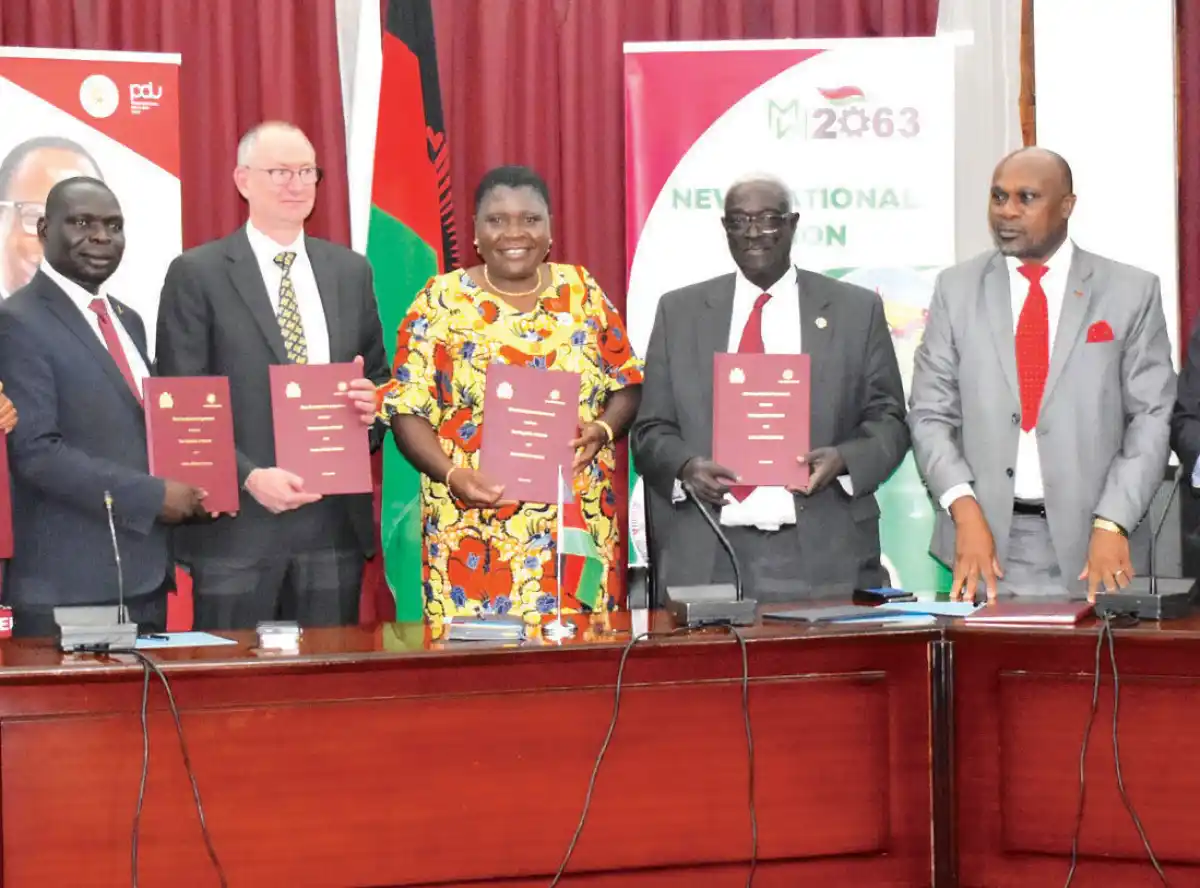
By Cathy Maulidi:
With the ghosts of Paladin’s Kayerekera Uranium Mine project revenue losses hanging on in the memory of many Malawians, pressure is beginning to rise for the government to disclose the contents of the two mining development agreements which it signed recently.
On July 26, 2024, Malawi signed the agreements with Lotus Resources Limited (for the same Kayerekera Uranium Mine in Karonga) and Mkango Lancaster Exploration Limited (for rare earth on Songwe Hill in Phalombe).
The signing of the deals came on the back of a dark history of a previous Kayerekera Uranium Mining agreement through which Malawi is said to have lost an estimated $40 million in five years tax exemptions.
The loss was attributed in part to the fact that the mining agreement was not subjected to public scrutiny before the signing.
Now with the new mining deals signed, mining expert and industry analyst Kennedy Rashid said as of now, Malawians cannot determine “as to whether we are going to benefit or not because the agreements have not been made public from the negotiating phase.
“We are only being told that we are going to benefit, but the what and how is not known,” he said.
Rashid described the signing of the agreements as a positive development when it comes to mineral development processes.
“[But] there is also a need for the signing processes to follow the right due diligence. If all mineral resources are owned by the republic, then the public has the right to know what has been agreed on its behalf in a manner that it is understandable.
“We expected the Minister of Mining to publish the said concessions for purposes of managing expectations and maintenance of the trust that people have bestowed on the ministry.
“On the other hand as citizens I believe we have the right to know what has been agreed proactively and we shouldn’t be getting lip service on the potential benefits that are expectant from the agreements.
“The challenge that arises after the agreements have been signed is the following up of agreed terms and conditions in the concessions,” Rashid said.
He further said if not made public, the processes and systems that have been followed to sign the agreements will raise suspicion.

In an interview Friday, Minister of Mining Monica Chang’anamuno said the ministry will soon make public the contents of the agreement.
“It’s a public document, so yes we will soon make it public,” she said.
Malawians are likely to take her word seriously having been smitten before by the Kayerekera Uranium Mining project.
In 2007, Malawi granted the Australian company, Paladin, a licence to mine uranium at Kayelekera.
It emerged later that in the agreement, the government had granted a raft of tax exemptions, which left Malawi worse off, according to analysts.
A report of the ActionAid Malawi in 2015, estimated that Malawi lost more than $43 million through tax affairs revenue between 2009 and 2014.
It said Malawi lost the money through “a combination of harmful tax incentives from the Malawian government, and tax planning using treaty shopping by Paladin”.
According to the report, this money could have paid for 431,000 annual HIV/ Aids treatments; or 17,000 annual nurses’ salaries; or 8,500 annual doctors’ salaries; or 39,000 annual teachers’ salaries.
Action Aid Malawi recommended that in future mining contracts, government should make sure that it does not hand out tax breaks that prevent it from raising the revenue it needs to fund public services and development plans.
“One way of doing this is to ensure that any tax incentives are subject to parliamentary and public, scrutiny before being signed; but also to continuously monitor whether any tax incentives given are actually beneficial to the Malawian people,” read the report.
Chairperson for Parliamentary Committee on Budget and Finance Gladys Ganda said while this is a good practice being followed by other countries, Malawi does not send tax treaties to Parliament for review before signing.
“In Malawi we don’t,” she said.
During the signing of the two recent agreements, Chang’anamuno said the deals would go a long way in reshaping and strengthening Malawi’s economy by among other things creating jobs, generating revenue through taxes and royalty, generating the much needed forex, and stimulate local economic activities in general.
She said Lotus is expected to create 450 direct jobs and 200 indirect ones.
She said the anticipated revenue hovers around $1.6 million per year in dividends, $20 million in royalties annually and other taxes only if the uranium price is pegged at $65 per pound.
As for Songwe project, she said it will create over 1,200 jobs during a two-year construction period and then 500 jobs per annum during the 18-year mine life, alongside 10,000 indirect jobs.
The anticipated revenue is $120.6 million per annum in the form of royalties, dividends and other taxes, according to Chang’anamuno.








0 Comments